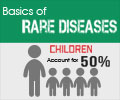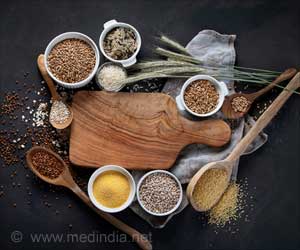
‘On the International Rare Disease Day, health experts stress on a national plan for creating awareness and treatment strategies for curbing lysosomal storage disorders in India.’
Tweet it Now
Lysosomal storage disorders (LSD's) are due to accumulation of waste in the lysosomes; cell organelles responsible for digesting dead cells, bacteria, virus, etc. The improper functioning of the enzymes inside these organelles results in the accumulation of waste, leading to complications like developmental delay, movement disorders, seizures, enlarged livers, enlarged spleens, and bone crisis, pulmonary and cardiac problems.Last month, the Delhi Government announced that a committee would be formed to develop a policy for tackling rare genetic diseases like Lysosomal storage disorders (LSDs) such as Pompe disease and Gaucher's disease, and Progeria that causes premature aging.
"In view of the fact that the Delhi Government has set up a committee to identify the number of patients in the state suffering from LSDs, the need of the hour is to create a fund and start treatment, with facilities for rehabilitative care centers to be set up immediately. A collaborative effort needs to be in place in consultation with expert geneticists of the state and with Government hospitals as soon as possible, as many children are dying every year. Even departments like ESI, the Armed Forces, PSUs and the Maharashtra Government have been giving free treatment to about 14 patients across India," said Mr. Manjit Singh, the president of the society.
Lysosomal Storage Disorders occur in about one in 5,000 live births. India currently has about 300-400 patients who have been diagnosed with treatable LSDs.
Dr.IC Verma, director of medical genetics at Sir Ganga Ram Hospital said, "There is an urgent need to develop a national plan for rare disorders in India to save and improve the lives of the large number living with these rare diseases. A definite policy to create awareness among public, doctors and health administrators is essential, with the establishment of diagnostic and management centers. These centers will also engage in counseling and prevention of these disorders."
Advertisement
"The World celebrates the Rare Disease day on 29 February 2016, and this provides an occasion for the Government and the corporate sector to dedicate and commit resources for the genuine cause of patients suffering from rare disorders," concluded Dr. Verma.
Advertisement










